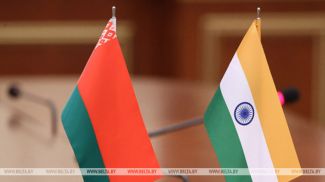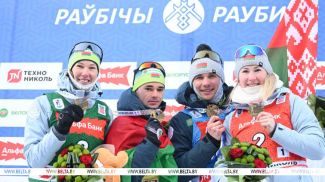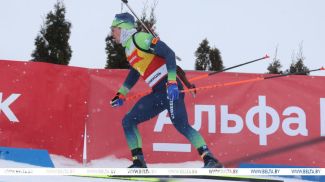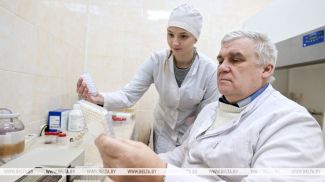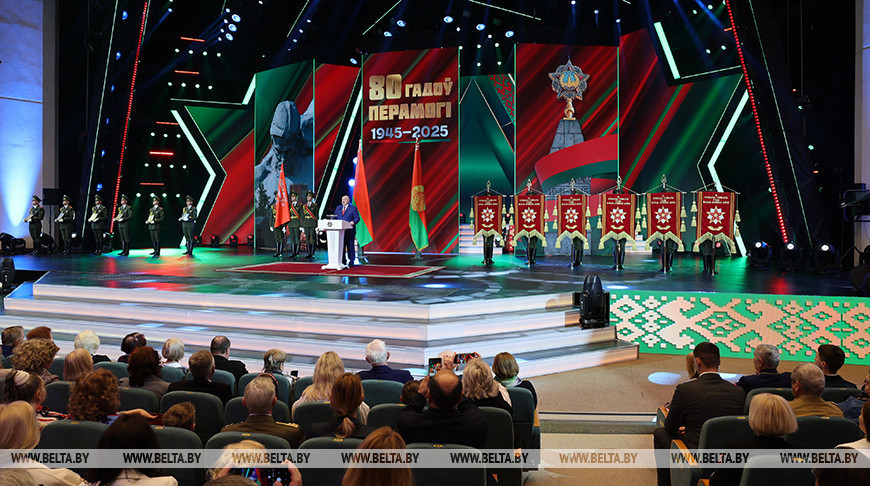
MINSK, 6 May (BelTA) – During a solemn assembly held on 6 May to mark the 80th anniversary of the Soviet nation’s Victory in the Great Patriotic War, Belarusian President Aleksandr Lukashenko emphasized the importance of historical lessons, BelTA has learned.
The head of state noted that the whole world celebrated the victory on 9 May 1945. The world’s attention was focused on the Soviet Union, the nation that defeated Nazi Germany. He cited the Sovetskaya Belorussiya newspaper that described Germany as “thrice cursed” that day.
“Decades later, we have not forgotten. I want them [who are abroad] to hear: we still remember, and we will never forget, we are grateful people (although it is hardly possible to express the appropriate amount of gratitude for the feat of the Soviet people),” the president stressed. “As we celebrate Victory Day, every year we mentally return to the past, painful but yet heroic. It contains lessons that help us look at our history, our present and our future without illusions!”


“We, the Slavs, as well as the rest of the ‘non-Aryans’, have no place in the future dreamed of by the Western elites. This is the goal, on the basis of which the ideology of Nazism, chauvinism and racism is flourishing today,” Aleksandr Lukashenko said. "The fate of Belarus was decided long before the German military invasion. Long before June of 1941. Its execution on the Belarusian land unfolded over 1,132 terrible days."

According to the president, even after 80 years, the scale of losses remains a deep wound in our hearts. More than 28 million Soviet citizens, according to rough estimates, although the real number is likely much higher, lost their lives during this time.
“We have not found all the graves yet, both in Belarus and in Russia. Not to mention those countries, whose authorities keep different statistics: they destroy and hide the traces of Nazi crimes,” the head of state. “We will never be able to count the number of those who were executed, whose remains were dug up, burned, crushed by the tracks of tanks and leveled with the ground. The record books, which were kept with German pedantry, registering every killed person, were also burned."

The president drew attention to the fact that taking into account the newly discovered mass graves of people killed during the Great Patriotic War in Belarus, it can be estimated that every third person died during that time. He did not rule out that, someday, we might even talk about every second person. “We have nothing to hide,” the head of state said.
"Lesson learned. The Great Patriotic War was far from the first invasion of the Slavic world from the West, which suffered from the incurable ailment of its own superiority. Under the guise of religious and ideological differences, they came to us, the Belarusians, and through us, centuries earlier, they 'liberated' vast and resource-rich lands. Liberate from whom? From us. For their own people, for their future. But without our Slavic world. Back then, we were not even considered as a colony. It was genocide. Cold-blooded and cynical," the Belarusian leader said.

“The last campaign of a united swastika-marked Western Europe towards the East surpassed all known wars in history in terms of brutality. But the scale of nationwide resistance shocked the enemy,” the president stated. “Captured soldiers and underground fighters who did not utter a word under brutal torture, soldiers throwing themselves onto machine guns, pilots directing their fighters and bombers at enemy columns - that was what stunned them. They abroad cannot comprehend how this could be,” the head of state remarked.
"We know that every act of heroism has both a male and a female face: often young, sometimes even that of a child,” Aleksandr Lukashenko added. “These heroic deeds had children's faces too. Our pioneers, little heroes of a great war, fought bravely alongside adults: their older brothers, fathers, and grandfathers. Out of one hundred Belarusian boys of conscription age at the start of the war, only three survived.”
The occupiers were shocked by the civilians who hid Jewish children and wounded Red Army soldiers in their homes, fully aware that entire families were hanged for such acts, the president said. The enemy did not expect to encounter the unprecedented self-sacrificing labor of Soviet women, the elderly, and children who worked tirelessly to support the front, taking the place of men who had gone to war. In some cases, life in the rear was even harder, Aleksandr Lukashenko pointed out. “Starving and utterly exhausted, they fought their own battle. The soldiers at the front also fought, died, and wished to live - but at least they had food. And those who were in the rear, despite starvation, did everything they could for the front,” he said.
“Belarus suffered irreparable losses. But we remember: our heroes left so that we, the future generations, would never know the pain of loss and grief. They passed away so that we could be born and live in peace. This is why Belarus remembers!” the head of state said.






